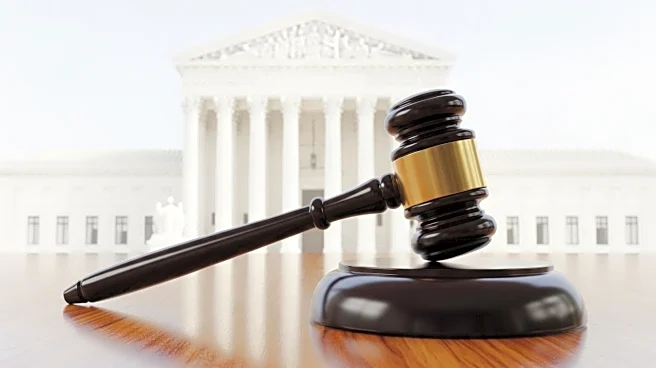What's Happening?
Federal Reserve governor Lisa Cook has urged the Supreme Court to reject President Trump's attempt to remove her from the Fed board. Cook's lawyers argue that Trump's move would undermine the Fed's independence and disrupt financial markets. The legal challenge follows allegations of mortgage fraud against Cook, which she denies. A federal judge previously blocked Trump's removal attempt, citing insufficient grounds under the law that created the Fed. The case has drawn support from former Fed officials and treasury secretaries who emphasize the importance of the Fed's independence.
Why It's Important?
The case has significant implications for the Federal Reserve's ability to operate independently from political influence. Allowing the president to remove a Fed governor could erode public confidence in the central bank and impact its ability to manage monetary policy effectively. The outcome of the Supreme Court decision will affect the Fed's role in setting interest rates and controlling inflation, with broader consequences for the U.S. economy.
What's Next?
The Supreme Court's decision will be crucial in determining the balance of power between the executive branch and independent agencies like the Federal Reserve. If the court sides with Trump, it could lead to increased political control over the Fed, affecting its ability to fulfill its mandates. The decision will be closely watched by economic stakeholders and could influence future interactions between the government and the central bank.
Beyond the Headlines
The case highlights the ongoing debate over the separation of powers and the role of the judiciary in protecting institutional independence. It raises questions about the limits of presidential authority and the importance of maintaining checks and balances within the government. The decision could have long-term implications for how independent agencies operate within the political landscape.









